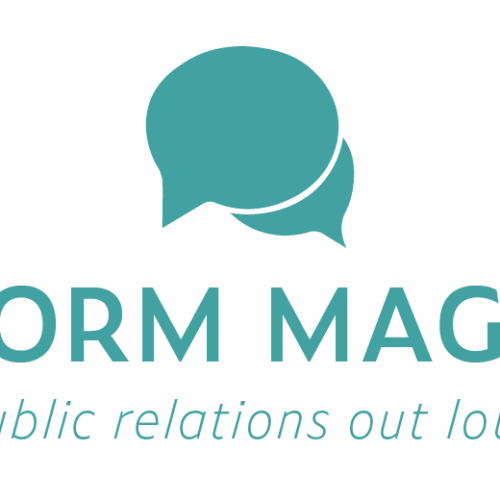Music Festivals Strike a Chord in Crisis Communications
Published on November 6, 2020, at 6:14 p.m.
by Emily Safron.
When COVID-19 turned the world upside down, many industries and events were severely hit. The music industry — particularly music festivals — left many wondering what its future holds. Would eager festival-goers ever go back to crowded sets across the globe? When the news initially hit, several communications teams for upcoming music festivals had to act on their feet to please ticket-holders while remaining successful businesses.
CMA Fest
CMA Fest, an annual music festival in Nashville, Tennessee, hosts up to 80,000 country music fanatics at Nissan Stadium and other locations throughout downtown Nashville. In its place, a panel titled “CMA Fest Through the Years” was held on June 4 for organization members. This was the first time the festival had been postponed in 48 years.
Catharine McNelly, senior director of the communications team at CMA, was a part of making the devastating decision to postpone CMA Fest for 2020. “Historically, we announce our first CMA Fest lineups in March each year,” McNelly shared. “Our team regrouped from home through remote video platforms and conference calls to put forth a plan as how we would move forward with CMA Fest. It quickly became clear that we had no other choice than postponing the 2020 festival — a truly heartbreaking decision, not just for our CMA staff but for so many others in the industry.”

As the head of the communications department, McNelly’s role is to work with all departments internally. To determine a decision this big, it was all hands on deck. “We outlined a thorough communication plan down to the minute as to when we would communicate pertinent details with various partners,” McNelly explained. “Once the decision was made, we began to work through our internal communication plan and developed a plan to appropriately communicate to fans affected by this decision. We made the decision to provide not only a thorough statement but one that was transparent and relatable to our consumers.”
To decrease fan backlash, CMA offered 2020 ticket-holders the chance to attend in 2021, free of charge, announcing that next year’s event would take place from June 10-13. Despite the disheartening news, CMA has already started planning for the future, including its 50th CMA Fest, scheduled for 2022.
Other music festivals found themselves in similar situations. However, Goldenvoice, Coachella and Stagecoach’s promoter, was not the first to announce that the two music festivals would be canceled. In March of 2020, the festivals’ organizers tried to postpone to October optimistically. However, Dr. Cameron Kaiser, health officer of Riverside County, California, warned of a possible spike in COVID-19 cases and made a cancellation order. In the latest news, Coachella was expected to announce on Labor Day it would be moving the concert again to October 2021 but has yet to report it.
James Barrett, a freelance travel & lifestyle journalist, published an article on Cosmopolitan this summer outlining the future of music festivals, due to his curiosity on the topic. Barrett spoke to both Steve Aoki and Debby Wilmsen, lead show organizer of Tomorrowland, to gauge their thoughts on what the next music festival would look like.
In terms of his own career, Barrett has found both positives and negatives to his experiences since COVID-19. “I don’t cover travel as much, as I have not been traveling, but on the other hand, it’s pushed me into new territories to cover under the lifestyle umbrella (that) if it wasn’t for COVID I wouldn’t have covered.”
As a past concertgoer, Barrett does not anticipate concerts happening until there is at least a vaccine. “I honestly cannot imagine Coachella happening the way it once did,” Barrett admitted. “I personally would be hesitant because even if there are guidelines, I don’t believe (that) in the setting of a singer performing people will abide by the rules.”
How professionals learned from postponement
With plans for festivals to be up and running for the coming year, fans remain optimistic that the tentative dates will not get postponed again. The current pandemic has taught communications professionals worldwide the importance of acting quickly to make both the consumer and the business happy.

Natalie Moore, account executive at Jarvis Communications, shared how COVID-19 has impacted her work-life experience. “By the nature of the work we do as publicists, we already know how to think on our feet and successfully craft a narrative in the midst of a sudden change and adversity,” Moore responded. As PR professionals, it is imperative to pivot accordingly in the time of a crisis.
“This ability has only gotten stronger in the light of COVID-19, as it’s been put to the test time and time again with all of the uncertainty the pandemic has encouraged. There is a lesson here which I think will stay with me for the rest of my career: Always be ready to shift your plan when necessary and look for opportunities when the world changes around you,” Moore explained.
Where music festivals are headed
One of the most significant tolls on CMA has been the live touring industry. “COVID has not just impacted those artists you see performing on stage — it has impacted an artist’s entire infrastructure — tour managers, lighting engineers, instrument techs, staging crews, merchandise teams, independent venues and so many more are without work,” McNelly shared. “Early estimations account for more than 40,000 music industry personnel in the state of Tennessee affected in some capacity by COVID. We understand the power of live music, and while we want our industry to get back to some sense of normalcy, we want to make sure we do so as safely as possible.”
With tentative plans communicated by several music festivals, we remain optimistic about the future of this industry.




